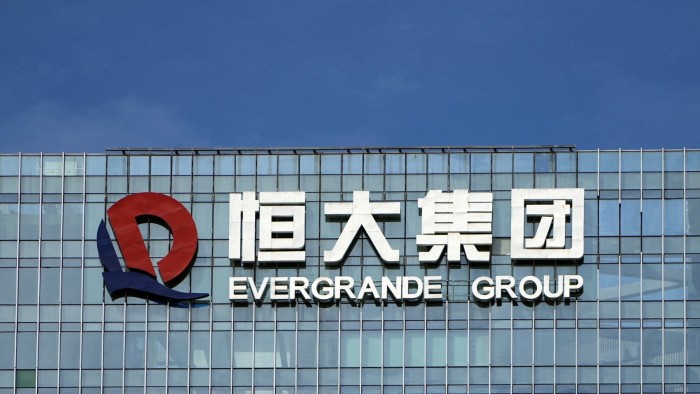Unlock the Editor’s Digest for free
Roula Khalaf, Editor of the FT, selects her favourite stories in this weekly newsletter.
Evergrande’s liquidators are trying to sell an Airbus private jet that belonged to the collapsed property developer’s founder, as they attempt to salvage some returns for the overseas investors that bought billions of dollars of the company’s bonds.
Alvarez & Marsal specialists Edward Middleton and Tiffany Wong, who were appointed to liquidate Evergrande’s Hong Kong-listed holding company in January, have taken control of the offshore entity that bought Hui Ka Yan’s jet and have put the jet up for sale, three people with knowledge of the matter said.
The plane, a business jet variant of the Airbus A319 which is the size of a commercial passenger jet, is in Guangzhou in southern China, according to flight records and two people with knowledge of the matter.
The plane was one of several markers of wealth that Hui amassed as he became one of the richest men in China during the company’s boom years, embodying a new breed of splashy Chinese tycoons.
The liquidators’ move sets up a test of their ability to enforce their ownership of assets in mainland China, whose legal system differs from the Hong Kong regime under which they were appointed.
Any successful sale would mark an early sign of progress by liquidators trying to return cash to investors exposed to the more than $20bn in offshore debt that Evergrande had when it defaulted in 2021, debt that is now almost worthless at current prices. Once China’s biggest property developer, Evergrande had more than $300bn in total liabilities when it defaulted, precipitating a broader cash crunch in the country’s property sector.
Hui bought mansions in London, Sydney and Hong Kong as well as a 60-metre megayacht and a football team, Guangzhou Evergrande. In 2017 he topped the Forbes China rich list with a total net worth of nearly $43bn.
A Hong Kong judge ordered the winding up of Evergrande’s holding company in the territory, where it listed in 2009, in January. Evergrande said last year that Hui had been placed under “mandatory measures” on suspicion of involvement in “illegal crimes”. Hui could not be reached for comment.
Alvarez & Marsal declined to comment.
The private jet, which is now 14 years old and in need of some repair and maintenance work, was “bigger [and] more expensive to operate” than many other private jets, said Jason Liao, chair and chief executive of China Business Aviation Group. He estimated it would be worth about $25mn to $30mn, compared with about $90mn when new.
Funds managed by BlackRock and HSBC were among those exposed to Evergrande bonds when it defaulted in 2021.
The liquidators are also trying to recoup funds by bringing lawsuits against Evergrande’s executives and the global professional services firms that helped enable its rapid growth by accessing foreign funding.
They have launched court proceedings against Big Four audit firm PwC, commercial real estate services company CBRE and advisory group Avista Valuation Advisory. PwC and CBRE declined to comment and Avista did not respond to requests to comment.
They are trying to recover $6bn from Hui and other top company executives in a separate suit. In March, the China Securities Regulatory Commission accused Hui and Evergrande’s mainland business of inflating revenues by $78bn over 2019 and 2020.
The plane is one of three private jets listed among Hui’s assets in court filings from March this year. The filings said he also owned an Airbus A330 and a Gulfstream G450 jet as well as two yachts and two Rolls-Royce Phantoms.
Read the full article here

